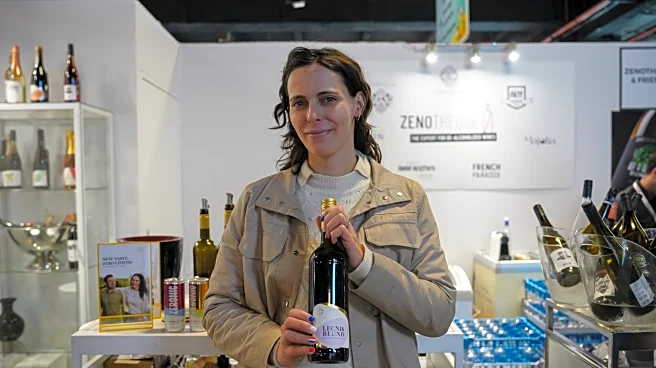What's Happening?
Friendship apps are gaining popularity as a modern solution to the challenges of forming new friendships in adulthood. These platforms, similar to dating apps, aim to facilitate the process of meeting new people and developing platonic relationships. Bumble BFF, a well-known app, has recently relaunched as a standalone platform, separate from Bumble's dating app. Other popular apps include Meetup, Yubo, and Nextdoor, which focus on organizing real-life meetups based on shared interests. Despite the availability of these technologies, forming lasting friendships remains difficult due to the complexities of adult social dynamics. Experts suggest that while these apps provide access to individuals open to new relationships, the process of building genuine connections requires time and consistent effort.
Why It's Important?
The rise of friendship apps highlights a significant societal issue: the difficulty of forming new friendships in adulthood. This trend reflects broader changes in social behavior and the increasing reliance on technology to bridge interpersonal gaps. The demand for such apps indicates a growing recognition of the importance of social connections for mental health and well-being. However, the challenges associated with these platforms, such as the lack of clear benchmarks for friendship progression, underscore the complexities of adult social interactions. As these apps continue to evolve, they may play a crucial role in addressing loneliness and fostering community engagement, potentially impacting public health and social cohesion.
What's Next?
As friendship apps continue to develop, they may face challenges similar to those encountered by early online dating platforms, such as societal stigma and questions about their effectiveness. Overcoming these hurdles will require ongoing innovation and adaptation to user needs. Future developments may include enhanced algorithms for matching individuals based on deeper compatibility factors and increased focus on facilitating meaningful, real-life interactions. Stakeholders, including app developers and mental health professionals, may collaborate to address these challenges and improve the efficacy of friendship apps in fostering genuine connections.
Beyond the Headlines
The emergence of friendship apps raises ethical and cultural questions about the role of technology in personal relationships. As these platforms become more prevalent, they may influence societal norms around friendship and community building. The reliance on algorithms to form connections could lead to a reevaluation of traditional social practices and the value of face-to-face interactions. Additionally, the success of these apps may prompt discussions about privacy and data security, as users share personal information to facilitate connections.











